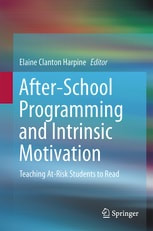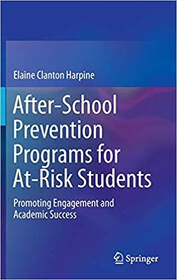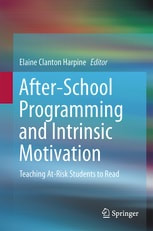Think about it. If you are struggling to learn to read, trying, feeling totally confused, and still failing—year after year, would you continue to work as hard as you possibly can even though you know that you are going to fail? The answer for most of us is no. Unfortunately, the same is true for students who are returning to school this fall still struggling to learn to read. For this reason, all of my reading programs teach vowel clustering and intrinsic (internal) motivation (see my 2019 book After-School Programming and Intrinsic Motivation.
We cannot continue to ignore reading failure:
- Reading failure is an education problem because it leads to academic failure and increases the number of students dropping out of school before graduation. The Nation’s Report Card states that 63% of students tested cannot read proficiently at the fourth grade level (see my post of 1/2/2018). It has been estimated that two thirds or approximately 6.6 million students are at high risk for dropping out of school before graduation because of reading failure. Reading failure is a major educational problem but one that we could solve—if we’d only change how we teach reading.
- Reading failure is a mental health problem because reading failure increases the risk of mental illness—anxiety, anger, depression, and even suicide. Approximately 80% of teens diagnosed with depression have also been diagnosed with reading failure. Children and teens are very vulnerable to feeling different than their peers. The fear of criticism from peers, teachers, or parents over reading failure, sometimes causes students to feel inferior, even ostracized.
As Morgan, Farkas, & Wu (2012) stated: “poor readers in third grade were about twice as likely to consider themselves as angry, distractible, sad, lonely, and unpopular in fifth grade as those who had not been poor readers in third grade. Being poorly skilled in mathematics increased children’s risk of feeling sad or lonely but not of feeling angry, distractible, or unpopular. The results provide additional empirical evidence that reading failure contributes to generalized socioemotional maladjustment in young children.” (p. 360)
Such feelings of inferiority can lead to anxiety and/or anger. Reading failure has been documented to show an increase in unacceptable behavior, bullying, and violence.
- Reading failure is a criminal justice problem because 60% of adult prison inmates in the U. S. cannot read or write; 75% of these inmates dropped out of school before graduation. About 85% of juveniles going through the courts are illiterate and cannot read or write. (National Center for Adult Literacy 2007).
- As Michael Brunner (1993) of the Department of Justice explains, “The link between academic failure and delinquency, violence, and crime is welded to reading failure.”
We can solve each of these problems by changing how we teach reading in the classroom and in after-school programs. Poverty does not cause reading failure. Incorrect teaching methods cause reading failure. Neuroimaging research proves that, if we change how we teach reading, even children who have previously failed can be taught to read. Neuroimaging research shows that intensive training in phonemes (letter sounds) changes the “brain and the way it functions.” This change allows even struggling at-risk students to make significant improvement in reading (Meyler, Keller, Cherkassky, Gabrieli, & Just, 2008).
Vowel clustering teaches students to decode or break words down into letter sounds and then to encode or reassemble those sounds back into pronounceable words. Vowel clustering does not stop at simply decoding and encoding. Vowel clustering also teaches spelling, oral reading fluency, comprehension, and writing. Vowel clustering has been tested and proven to work with struggling, at-risk, and failing students (Clanton Harpine & Reid, 2009).
Yes, we can teach children to read. We have the teaching methods to do so. Research proves it. If you need statistical research to bring change to your school, my forthcoming book (hitting the shelves in September), After-School Programming and Intrinsic Motivation (2019), demonstrates eight years of research showing that children who had failed in the classroom under whole language, phonics, and balanced literacy could indeed be taught to read successfully at their age level with vowel clustering, even children from low socioeconomic neighborhoods. We had children who moved up four grade levels in reading in one year.
Yes, we can end reading failure today. We can help all struggling students learn to read. We just need to change how we teach in the classroom.
I’ll be teaching a free training workshop on vowel clustering, September 9, 2019 at 4:00 PM in Corpus Christi, Texas. Come join us. Click the email button at the top right of this page and ask for more information on the training workshop.



 RSS Feed
RSS Feed
